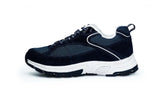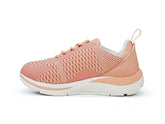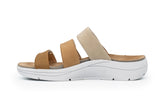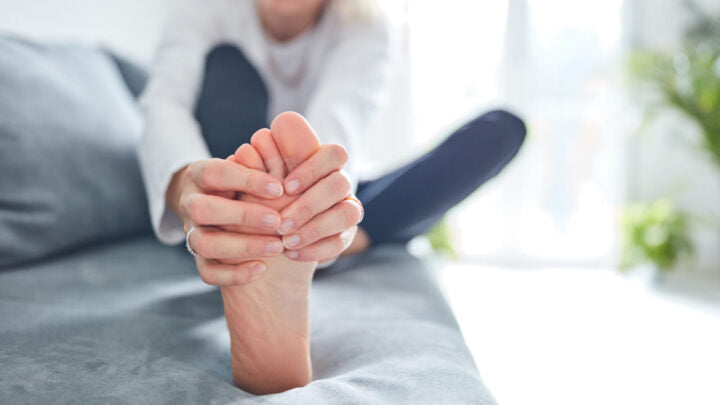Footwear Interventions for Arthritic Foot Pain: Enhancing Mobility and Well-being
Many people who have rheumatoid arthritis (RA), gout, or 1st metatarsophalangeal joint osteoarthritis (1MTP OA) experience foot pain and dysfunction. These symptoms can have a significant impact on their daily lives, causing impairment and disability.
Over the past few years, there has been a lot of interest in using different types of footwear interventions to help with these symptoms and enhance foot health. Research exploring the impact of various types of footwear interventions has yielded encouraging findings, suggesting notable enhancements in pain management, functionality, and overall well-being for individuals affected by arthritic conditions.
Rheumatoid Arthritis (RA)

Numerous studies have demonstrated noteworthy enhancements in foot pain, function, impairment, and disability through the implementation of various footwear interventions.
Therapeutic footwear designs that incorporate patient and practitioner input have shown remarkable advancements in alleviating foot pain when compared to conventional therapeutic footwear.
Footwear with extra-depth and semi-rigid orthoses demonstrated notable pain reduction when compared to other footwear conditions.
Some footwear interventions were found to reduce plantar pressure and improve walking velocity.
Gout

In the realm of footwear, the quality of the characteristics played a crucial role in bringing about noteworthy enhancements in foot pain and function. On the other hand, when the characteristics were lacking, there was no substantial improvement observed.
Footwear that provides ample cushioning and support has been found to have positive effects on foot health, improving outcomes.
Conversely, inadequate cushioning and support in footwear have been shown to contribute to increased foot-related impairment and disability.
1st Metatarsophalangeal Joint Osteoarthritis (1MTP OA)
Both rocker-sole footwear and footwear with foot orthoses shows positive effects on foot pain. Rocker-sole footwear decreases pressure on the 1MTP and resulted in improved patient-reported outcomes.
Exploring Patient-Reported Outcomes and Biomechanical Changes :
Footwear interventions have shown significant improvements in patient-reported outcomes, including pain reduction, improved function, decreased impairment, and enhanced disability management. Specific footwear interventions lead to biomechanical improvements.
Footwear interventions have demonstrated promising results in alleviating foot pain, impairment, and disability among individuals suffering from rheumatoid arthritis, gout, and osteoarthritis in the 1st metatarsophalangeal joint.
However, more research is necessary to tackle methodological inconsistencies, delve into the long-term effects of interventions, and examine the footwear needs of other arthritic conditions.
Keep your feet pain-free with DiabeticShoe.in, the ultimate destination for proactive foot care. Explore our comprehensive collection of footwear for arthritis foot designed for your overall comfort!








